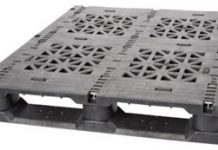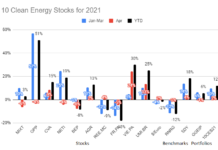Tom Konrad CFA
On March 22, the Conservative Canadian federal government released its proposed 2011 budget. The biggest news about the budget is not what is in it, but the fact that it is likely to lead to a no-confidence motion in Parliament, and bring about a new election.
One provision of the conservative budget is the C$400 million ecoEnergy Retrofit program was included in the budget as a sop to lure support from the New Democrat party, but proved insufficient to gain their support.
Canadian insulation manufacturers hailed the inclusion of the home insulation program in the budget. Stephen Koch, Executive Director of the insulation industry association, NAIMA Canada, said, “We are pleased to see the renewal of the ecoENERGY program. It is an important tool that will help with economic growth and recovery in Canada.”
I followed up with Koch about the prospects for ecoENERGY in the next budget after the election. He replied,
“I would be highly surprised if the next federal government did not reintroduce something like the ecoEnergy program. The Conservatives are saying that if that are elected, they would introduce the same budget. The Liberals have also revealed a platform supporting a similar program, and the NDP also supports it.
“The only concern I see is the length of the program. I believe it must
be at least two years minimium and the requirement of mandatory label of
the energy efficiency of a home be mandated as disclosue to the buyer
should be implemented after the two years.”
All the major Canadian parties support the program because Energy efficiency measures help economic growth twice. Like any expenditure, they create economic activity, but they also have the added benefit of saving homeowners more money than they cost on energy bills. This money can then be spent on other goods and services, providing a second boost to the economy.
Canadian Insulation Stocks
When ecoENERGY (or a similar) reinstated, Canadian insulation companies should get a boost along with the economy, although that boost will be limited if the program is for only a year.
The five members of NAIMA Canada are CertainTeed Corp., Johns Manville, Knauf Insulation, Owens Corning, and Roxul, Inc. Knauf is privately held, while Johns Manville and CertainTeed are divisions of the much larger conglomerates Berkshire Hathaway (BRKA) and Saint-Gobain (CODGF.PK), respectively.
For green investors looking at insulation as an energy efficiency play, the two stocks to know are pure-play insulation manufacturers Owens Corning (OC) and Rockwool International (RKWBF.PK), the Danish parent company of Roxul.
Owens Corning is well known in North America for its ubiquitous pink fiberglass insulation, but also makes a wide range of insulation and roofing products.
Rockwool was founded in 1909 number 10 on Forbes’ list of the world’s most respected global companies in 2007. Rockwool makes a range of insulation for buildings as well as marine and offshore environments,
One other company which benefited from ecoENERGY last time around was Waterfurance Renewable Energy (WFI.TO/WFIFF.PK). In Waterfurnaces’s 2010 annual report, the company specifically mentioned the end of the ecoRNERGY retrofit program in 2009 as one factor leading to slow sales growth in 2010.
Unless extended for more than a year, Canada’s ecoENERGY program will probably not make more than a few percent of difference to either company’s bottom line, but its inclusion by a conservative party in Canada’s deficit-fighting budget, and its support across the political spectrum demonstrates that insulation is one green measure that makes both political and economic sense even when budgets are tight.
More energy highlights of the Canadian budget are here.
DISCLOSURE: Long WFIFF
Past performance is not a guarantee or a reliable indicator of future results. This article contains the current opinions of the author and such opinions are subject to change without notice. This article has been distributed for informational purposes only. Forecasts, estimates, and certain information contained herein should not be considered as investment advice or a recommendation of any particular security, strategy or investment product. Information contained herein has been obtained from sources believed to be reliable, but not guaranteed.








